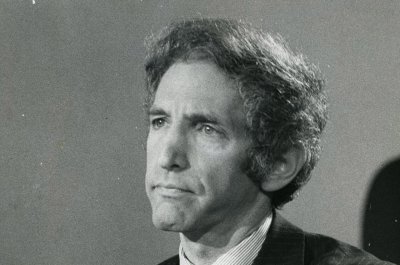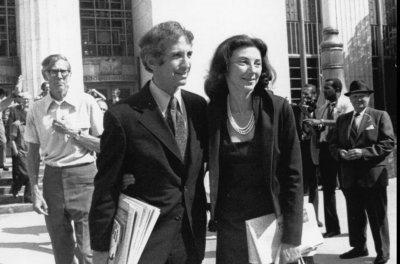Topic: Robert McNamara
Quotes
Riders cite the pleasure of going helmet-less, but often the cost of care for the injured motorcyclist is passed on to society at large
Helmet personal freedom can cost taxpayer Jan 28, 2008
The American Academy of Emergency Medicine believes that states should require helmet use in all age groups
Helmet personal freedom can cost taxpayer Jan 28, 2008
It's ridiculous in these days of skyrocketing gas prices that Raj is being threatened with thousands of dollars in fines because the government says his gas prices weren't high enough
Wisconsin gas discount ban challenged Jun 27, 2007
It is inconsistent and ineffective to demand disarmament and pursue 'regime change' simultaneously
Ex U.S. defense chief warns U.N. on nukes May 24, 2005
Any military commander who is being honest with himself or the people he is speaking to will admit that he's made mistakes with the application of military power
Analysis: War, peace and cinema May 19, 2004
Robert Strange McNamara (June 9, 1916 – July 6, 2009) was an American business executive and the eighth Secretary of Defense, serving under Presidents John F. Kennedy and Lyndon B. Johnson from 1961 to 1968, during which time he played a large role in escalating the United States involvement in the Vietnam War. Following that he served as President of the World Bank from 1968 until 1981. McNamara was responsible for the institution of systems analysis in public policy, which developed into the discipline known today as policy analysis.
Robert McNamara was born in San Francisco, California. His father was Robert James McNamara, sales manager of a wholesale shoe company. His mother was Clara Nell Strange McNamara, whose maiden name was given as her son's middle name. According to McNamara, his father's family was Irish and in about 1850, following the Great Irish Famine, had emigrated to Massachusetts and later to California. He graduated from Piedmont High School in Piedmont, California in 1933 where he was president of the Rigma Lions boys club and earned the rank of Eagle Scout. He graduated from the University of California, Berkeley in 1937 with a Bachelor of Arts degree in economics with minors in mathematics and philosophy. He was a member of Phi Gamma Delta fraternity, was elected to Phi Beta Kappa his sophomore year and earned a varsity letter in crew. He was also a member of the UC Berkeley's Order of the Golden Bear which was a fellowship of students and leading faculty members formed to promote leadership within the student body. He earned an MBA from Harvard Business School in 1939.
After graduating from Harvard Business School, McNamara worked a year for the accounting firm Price Waterhouse in San Francisco. In August 1940 he returned to Harvard to teach accounting in the business school and became the highest paid and youngest assistant professor at that time. Following his involvement there in a program to teach analytical approaches used in business to officers of the United States Army Air Forces, he entered the USAAF as a captain in early 1943, serving most of World War II with its Office of Statistical Control. One major responsibility was the analysis of U.S. bombers' efficiency and effectiveness, especially the B-29 forces commanded by Major General Curtis LeMay in India, China and the Mariana Islands. McNamara established a statistical control unit for XX Bomber Command and devised schedules for B-29s doubling as transports for carrying fuel and cargo over The Hump. He left active duty in 1946 with the rank of lieutenant colonel and with a Legion of Merit.
It uses material from the Wikipedia article "Robert McNamara."







